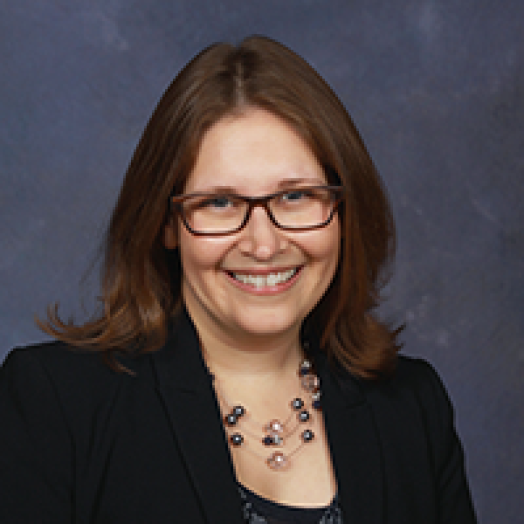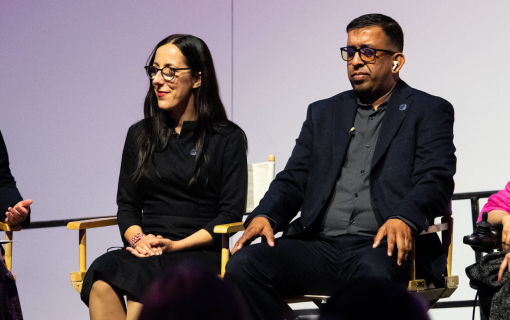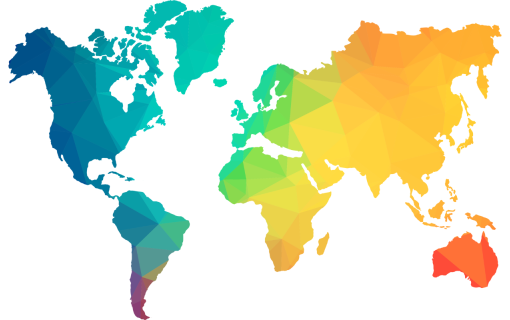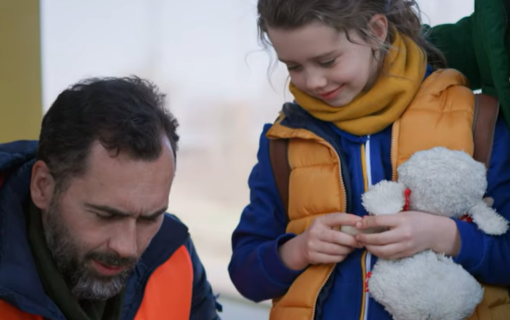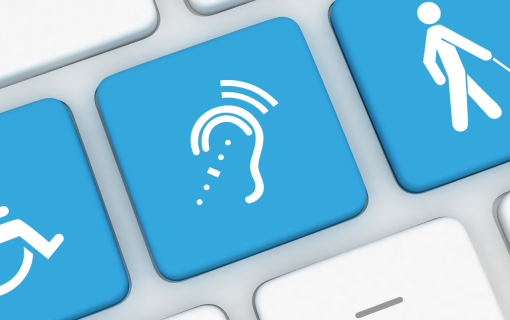IFES Disability Rights Programming Receives Innovative Practice Awards
On February 25, 2015, the International Foundation for Electoral Systems’ (IFES) disability rights programming received two Innovative Practice Awards from the Zero Project at the United Nations (UN) headquarters in Vienna. IFES’ global approach to inclusion was highlighted along with a specific accolade for IFES Nepal’s work to include people with disabilities in local governance structures. Virginia Atkinson, IFES Access and Inclusion Specialist, and Suraj Sigdel, IFES Nepal Project Officer, accepted the awards.
The Zero Project, an initiative of the Essl Foundation, provides a platform where the most innovative and effective solutions to problems that persons with disabilities face are shared with stakeholders from around the world. The foundation works with a network of over 3,000 disability rights experts in over 150 countries, in order to research and identify the most innovative and effective policies and practices that improve the lives of persons with disabilities. On an annual basis, the Zero Project compiles a report based on different aspects of the UN Convention on the Rights of Persons with Disabilities. The final report is used by policymakers at international, regional, and national levels worldwide to guide their inclusion work. For 2014-2015, the Zero Project’s focus is on independent living and political participation.
As an Innovative Practice Award winner, the Zero Project noted that IFES’ Global Election Access Program – which encompasses IFES’ broader work on supporting the political participation of persons with disabilities – has generated tools, best practices, and lessons learned with strong potential for global impact. IFES’ inclusion work promotes specific recommendations to elections officials regarding the creation of inclusive election services and voting environments, provides leadership training to disability rights advocates on participating in political life, and creates tools such as a manual entitled Equal Access: How to Include Persons with Disabilities in Elections and Political Processes, which has been translated into eight languages as of this writing.
The Zero Project also named a specific IFES project from Nepal as an Innovative Practice Award winner in its own right. By reaching out to grassroots communities through a series of intensive trainings and awareness-raising campaigns, more than 125 disabled persons’ organizations and disability-inclusive groups on national, district, and local levels are now actively championing for their political and electoral rights in Nepal. One advocacy plan helped to modify the voter registration process so that approximately 1,050 persons with disabilities were registered as electors for the first time.
The awards ceremony was followed by a two-day conference where delegates asserted that political participation is a gateway to people with disabilities securing the same rights as their fellow citizens. The conference was opened by Facundo Chavez Penillas from the UN Office of the High Commissioner for Human Rights. He noted that “the motto, nothing about us without us, will never happen without ensuring the right to political participation.” Sigdel spoke on a panel, entitled “Voting and Elections in the Global South,” that was moderated by Atkinson. The panel also included speakers from the South Africa’s election management body and a disabled person’s organization from Zimbabwe.





